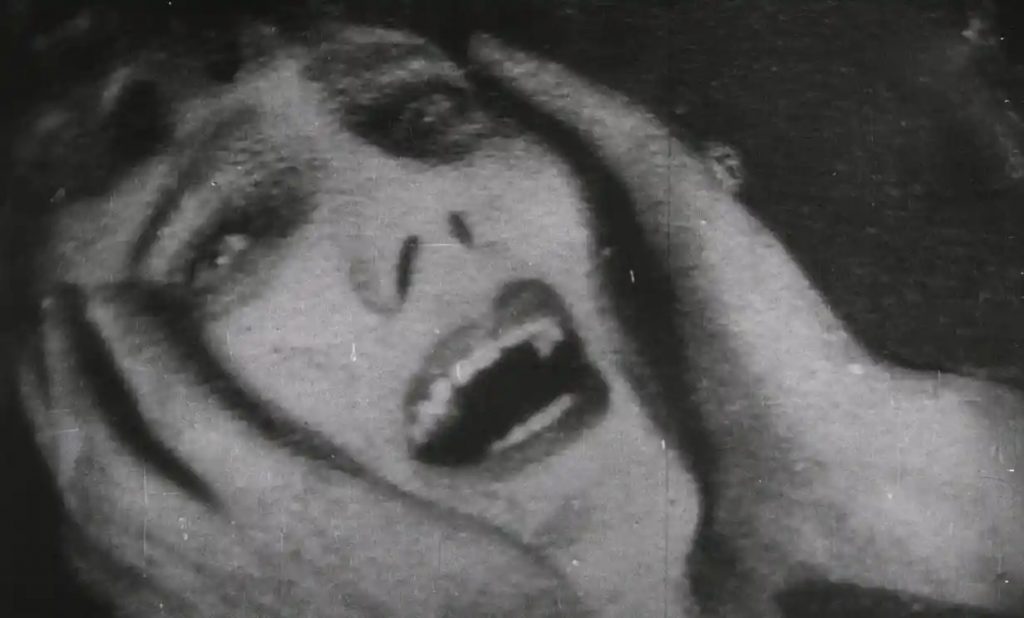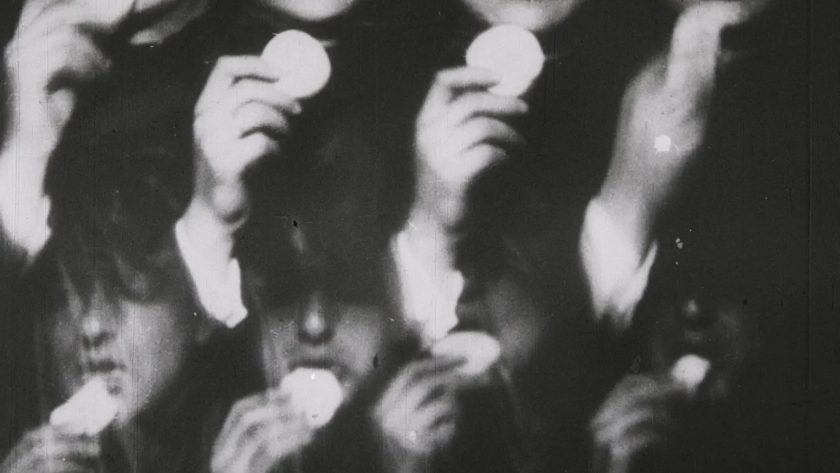BFI’s London Film Festival is in town! The FilmSoc Blog is back for the 65th edition of the city’s largest film festival, delivering a look at the hits and misses of the 2021-22 season.
Milo Garner reviews a once lost avant-garde masterpiece of the 1930s, now finally receiving a world premiere at the BFI London Film Festival.
They thought the Nazis had it in 1940. Tossed in some unholy fire, some churning mechanism. The seizure and destruction of all degenerate art. It is not a strain to imagine some enormous pyre onto which were thrown the many deviances of old, old Europe. But this pyre was yet another delusion of the Nazi panopticon. The many chutes erected across the continent, onto which were printed the words ‘INCINERATION FUNNEL: DEPOSIT DEGENERATE ART HERE’, did not in fact lead to fiery inferno. Instead, a long and large pipeline took these works from peripheral conquests by tortuous tubework into the imperial middle. Their final destination was the Reichsarchiv itself; there to be preserved, and looked upon by those privileged enough within the German hierarchy. Be they hypocrites: they found and sought value in those works they had proclaimed anathema to a just and righteous society. Or be they cowards: in seeing the subversive potential of these works, they saw too their obvious magnitude – they could not bring themselves to destroy the European cultural tradition, only to steal it. In both cases: ignoble goons.
It was here Europa travelled in 1940: not into memory, but into the bowels of Nazi Germany. It was available for screening. I cannot help but envisage an assemblage of the Nazi brass sitting in distraught awe, the undulating frames of Europa aflame before them. Most do not understand it; certainly they don’t like it. Göring sits, bored, in his cloud-white uniform, equal measures bulbous and bemused. Goebbels is instead transfixed: it is he who called this screening, it is he who knows what images can do. Adolf himself hums a tune by Bruckner, eyes glazed over. The film looks back at them: six years, Europa knows, six years and the great wash of east and west, fire and liberation. Europa did not expect eighty years more of imprisonment. Europa did not expect to be shipped from the ruins of Germany into the Soviet Union, and from the Soviet Union into the new GDR, from the GDR into the Federal Republic, and from there to this sceptred isle. It has known, in its lifetime, Polish republicanism, French republicanism, German fascism, Russian communism, German communism, German federalism, and at last British monarchy. It has laid claim to the continent after which it takes title. Over its secret life it has witnessed upheaval, it has reflected a people who change in uniform but retain their fundamental form.

Europa begins as many socialist films begin: with a cavil against demagoguery, against those who would feed the hungry not with bread but with words. Bile and spite. A long menu for the poor man: he may choose between New World Orders; Judicial Killings; Regime Changes; Ideological Salvation. All he wants is a meal. So far so familiar; the Russian cinema had long prior mastered the measly fate of hungry workers. But Europa is of a different substance. As the film progresses, it arcs increasingly away from the poem on which it is based. A few lines become essential: intellectualism is/psychological sadism/do not transform life/into a fight between types of logic. These verses transform into the middle-explosion of the film. Where images morph from photographic into absolute: a hand becomes instead a white-upon-black hand-shaped substitution. Everything is reduced to constituent parts; life becomes not enriched but abstracted by endless logics and machines. One cannot order all things; complete order is, in 1931, the bane of Europe; it remains a bane. The next lines, that follow closely in the poem, defy this order: this green blade of grass/squeezed up between two paving stones/this wreck tearing itself loose/on the chequered/stony/atlantic/is the messenger of death-. So we witness a single blade of grass emerge from between paving stones, and then uproot these stones. Then become a sapling; then a tree. Human folly wrecked by towering verdure: such images are already scattered throughout the film, and from here take precedence.
Boughs and branches in revolt. David Lowery’s The Green Knight becomes a strangely apposite bedfellow: his thesis, not unlike that of the Themersons, supposes all-powerful nature defeating the friable constructs of man. All that we build will be torn down; the roots go deep. Tolkien’s Ents athwart Isengard. Yet between Lowery and the Themersons is a gaping chasm. Lowery sees nature as inclined against mankind altogether. For Lowery, there is little meaning in a world doomed to self-destruction; the triumph of decay makes all human pursuits futile. But the Themersons draw their lines differently. In Europa the bursting sprout is not merely the literal product of decay and overgrowth, but rather the spirit in and of all men. Of those subjugated people throwing off their stony metropolises; cracking concrete chains; at last breathing and green. This is the radicalism of Europa.
Spitting at fascism is admirable enough, but old hack. To do so while glorifying the human condition; to do so while seeking and finding a meaning beyond political alignment and beyond the arrangement of ideologies: it becomes a work of towering spirit. All made capsule in the final image. A woman leaps off a diving board, into nowhere. We do not see her enter the water (we must assume water). There is no splash or landing. The effect is one of presentiment and one of inevitability. Read it, perhaps, in the way of Bergman’s The Serpent’s Egg, which peers back at Weimar Germany. Bergman believes that anyone who truly looks can see the looming disasters of their age:
One day you can tell all this to anyone who is willing to listen. No one will believe you, despite the fact that anyone who makes the slightest effort can see what is waiting in the future. It’s like a serpent’s egg. Through the thin membranes, you can clearly discern the already perfect reptile.
I sense it is more optimistic. Not a descent into fascist churning – or not solely that – but the turning of the cosmic screw; the inevitable splash of Europa liberated, her people washed clean.
Europa screened at the BFI London Film Festival on 6th October 2021





What a brilliant blog! Is there any way to find the film online or do you think the BFI might screen it again at some point?
Thanks
Pedro